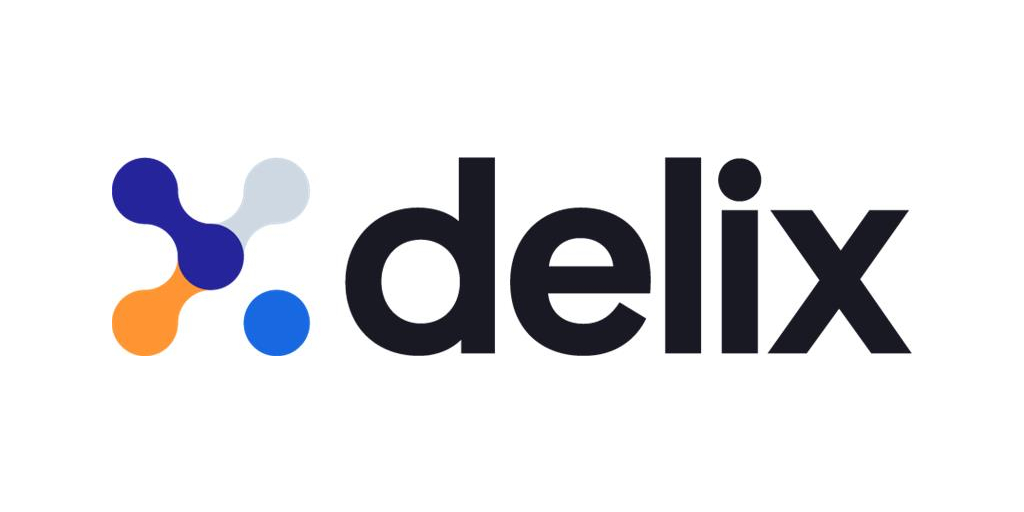Novel Neuroplastogen Demonstrates Favorable Safety and Tolerability Profile, Dose-Dependent Pharmacokinetic and Pharmacodynamic Measures, and No Evidence of Hallucinogenic, Psychotomimetic, or Dissociative Effects
Phase 1 Findings in Healthy Volunteers Support Continued Evaluation of DLX-001 in Recently Initiated Phase 1b Study in Patients with Major Depressive Disorder
DLX-159 Nominated as Third Developmental Candidate, Broadening the Company’s Portfolio of Novel Neuroplastogens
BEDFORD, Mass.--(BUSINESS WIRE)--Delix Therapeutics, a clinical-stage neuroscience company developing novel neuroplasticity-promoting therapeutics for psychiatric and neurological disorders, today announced full results from the Phase 1 trial evaluating DLX-001, a novel neuroplastogen, in healthy volunteers, which were presented at the 2024 American College of Neuropsychopharmacology (ACNP) Annual Meeting in Phoenix, Arizona. Preclinical data on DLX-159, a next-generation neuroplastogen, were also presented at the meeting.
“DLX-001 has continued to demonstrate a favorable safety and tolerability profile, with no evidence of psychotomimetic, hallucinatory, or dissociative effects,” said Aaron Koenig, MD, Chief Medical Officer of Delix Therapeutics. “These findings, coupled with dose-dependent effects on pharmacodynamic measures, support the continued evaluation of this first-in-class neuroplastogen for psychiatric conditions such as MDD in our ongoing Phase 1b study and forthcoming Phase 2 study.”
Phase 1 Results for DLX-001, a Novel Neuroplastogen under Development for the Treatment of Major Depressive Disorder
Lead Author: Aaron Koenig, M.D.
Session Date: Wednesday, December 11
Session Time: 5:00-7:00pm MT
This Phase 1, three-part study enrolled 106 healthy volunteers with the primary objectives of assessing safety, pharmacokinetics (PK), and pharmacodynamic (PD) markers. Part A was a randomized, double-blind, placebo-controlled single ascending dose (SAD) study of DLX-001. Part B was an open-label crossover design study to investigate the effect of food on the PK of DLX-001. Part C was a randomized, double-blind, placebo-controlled multiple ascending dose (MAD) study in which participants received multiple oral doses of either DLX-001 or placebo over 7 days.
Key Findings
- DLX-001 demonstrated a favorable safety and tolerability profile in this first-in-human study, with no serious adverse events (SAEs) observed.
- No psychotomimetic, hallucinatory, or dissociative effects were observed at any dose level, as reflected by no change over time on a robust battery of assessments.
- Time and dose-dependent changes measured by resting-state quantitative electroencephalography (qEEG) in markers relevant to synaptic strengthening, paired with consistently measurable concentrations of drug in the cerebrospinal fluid (CSF), support brain penetration and central activity at expected therapeutic concentrations.
In addition to this Phase 1 data, Delix presented preclinical findings on its newest neuroplastogen developmental candidate, DLX-159, an orally bioavailable, non-hallucinogenic small molecule that promotes rapid and enduring plasticity in key brain areas. This is the third developmental candidate in Delix’s growing pipeline and expands development into additional indications. The findings highlight DLX-159’s potential to impact structural and functional neuroplasticity in preclinical models of multiple brain disorders.
DLX-159: A Novel, Next Generation, Non-Hallucinogenic Neuroplastogen with the Potential for Treating Neuropsychiatric Diseases
Lead Author: Kurt Rasmussen, Ph.D.
Session Date: Tuesday, December 10
Session Time: 5:00–7:00pm MT
The effects of DLX-159 were examined in multiple in vitro, ex vivo, and in vivo assays relevant to neuroplasticity and the treatment of MDD and other CNS disorders.
Key Findings
- In PK studies, DLX-159 was shown to be orally bioavailable and brain penetrant.
- In vitro, DLX-159 promoted dose-dependent increases in structural plasticity.
- A single dose of DLX-159 significantly increased dendritic growth, spinogenesis, synapse density, and spontaneous excitatory postsynaptic currents (sEPSCs) 24 hours after administration, assays measuring structural and functional neuroplasticity.
- A single dose of DLX-159 showed efficacy in multiple in vivo behavioral models relevant to MDD, including the modified Forced Swim Test and the chronic Interferon-alpha induced depressive phenotype.
- DLX-159 did not induce head twitches or psychostimulant effects at behaviorally relevant doses, suggesting a more favorable profile than first-generation psychedelic compounds.
- No signs of cardiotoxicity were observed at relevant concentrations, and DLX-159 acted as an antagonist to 5-HT2B receptors, indicating a favorable cardiovascular safety margin.
“We are thrilled to have nominated our third developmental candidate, DLX-159, further expanding our pipeline of novel neuroplastogens for neuropsychiatric conditions of high unmet need,” said Kurt Rasmussen, PhD, Chief Scientific Officer of Delix Therapeutics. “These encouraging preclinical results demonstrate that DLX-159 promotes strong neuroplasticity and therapeutic effects in a wide range of preclinical models, without the hallucinogenic or cardiotoxic properties seen in traditional psychedelic compounds, such as ketamine and psilocybin. With very promising efficacy signals and a strong safety margin, we look forward to progressing DLX-159 into the clinic.”
Delix’s Senior Director of Pharmacology, Stephanie McTighe, PhD, participated in a panel exploring how non-psychedelic analogs of first-generation psychedelic compounds, such as Delix’s neuroplastogens, can be developed into novel treatments for brain disorders. Dr. McTighe presented translational data on DLX-001, which demonstrated robust neuroplastic effects in vivo and in vitro, rapid and enduring antidepressant responses in preclinical models, as well as a lack of dissociative, hallucinogenic, and psychotomimetic effects in human subjects.
Non-Psychedelic Psychedelics: Preclinical and Clinical Evidence of the Therapeutic Actions of an Oxymoron
Participants: Scott Thompson (Chair), Stephanie McTighe, John McCorvy, Scott Thompson, and Zoë Hughes
Session Date: Monday, December 9
Session Time: 3:00-5:00pm MT
For more information, please visit: www.delixtherapeutics.com.
About DLX-001
DLX-001 is a novel, non-hallucinogenic, non-dissociative isotryptamine neuroplastogen currently being evaluated for the treatment of Major Depressive Disorder (MDD). Preclinical data has demonstrated that DLX-001 increases dendritic spine density in PFC neurons and has rapid and enduring antidepressant-like effects in animal models after a single dose. Recent Phase 1 data has demonstrated that DLX-001 is associated with robust signs of CNS engagement and a favorable safety and tolerability profile, with no serious adverse events reported to date.
About DLX-159
DLX-159 is a novel, non-hallucinogenic, non-dissociative, tryptamine neuroplastogen being developed for the treatment of Major Depressive Disorder (MDD) and other neuropsychiatric disorders. Preclinical data has demonstrated that DLX-159 increases structural and functional plasticity in prefrontal cortical neurons and has rapid and enduring antidepressant-like effects following a single dose in relevant animal models. Translational preclinical studies demonstrate that DLX-159 elicits a robust signal of CNS engagement. With the promise that DLX-159 holds as a novel treatment for neuropsychiatric conditions, it is being advanced to IND-enabling studies.
About Neuroplastogens
Neuroplastogens are a novel class of potentially disease-modifying therapeutics for psychiatric and neurological conditions. These compounds promote rapid and sustained neuroplasticity in select neural circuits resulting in fast-acting therapeutic effects. Neuroplastogens are novel chemical entities inspired by compounds that are proving to be beneficial across a range of therapeutic areas including mood, anxiety, cognitive, and neurodegenerative disorders in addition to other synaptopathies. Leveraging our phenotypic drug discovery engine to generate distinct compounds, Delix seeks to bring to market a pipeline of neuroplastogens that aim to be the faster, stronger, and more effective therapies of the future.
About Delix Therapeutics
Delix Therapeutics is a clinical-stage neuroscience company focused on harnessing the power of novel neuroplasticity-promoting therapeutics to better treat patients struggling with difficult-to-treat neuropsychiatric and neurological disorders. The company’s compounds are easily manufactured small molecules capable of rapidly inducing structural and functional neural changes in targeted areas of the brain. Through its novel Neuroplastogen Platform, Delix is pioneering a new class of fast-acting outpatient pharmacotherapies and rapidly advancing through preclinical and clinical development to bring patients FDA-approved, take-home medicines that are intended to serve several unmet needs and enhance the psychiatric treatment paradigm for patients and providers.
Contacts
Investor Relations:
Retsina Meyer, PhD
Delix Therapeutics
invest@delixtherapeutics.com
Media Relations:
Robert Stanislaro
FTI Consulting
delix@fticonsulting.com






